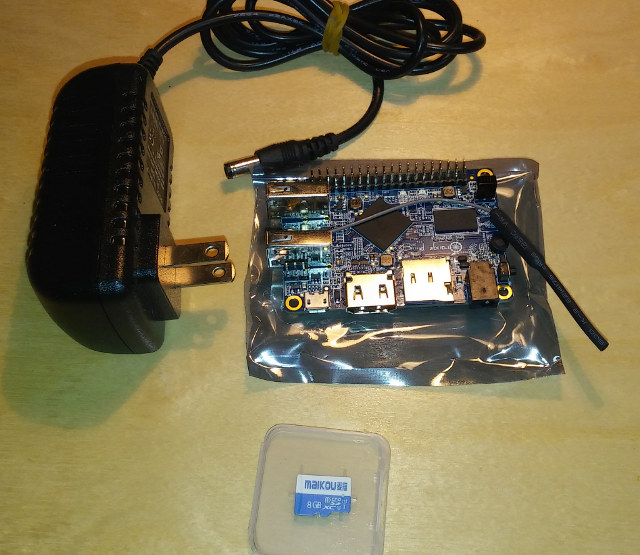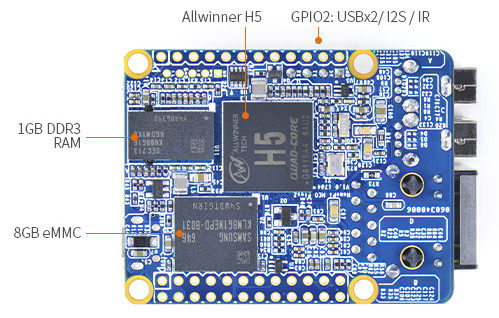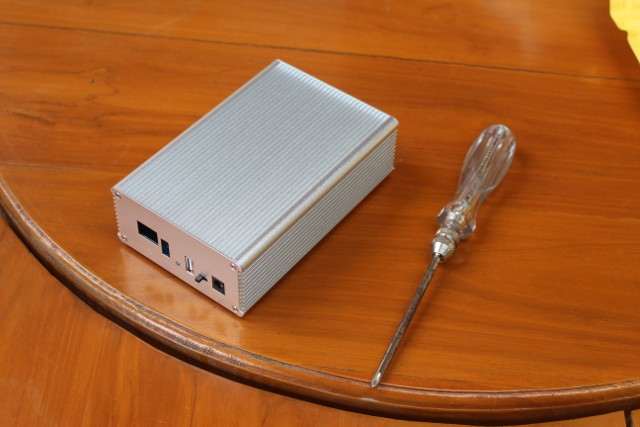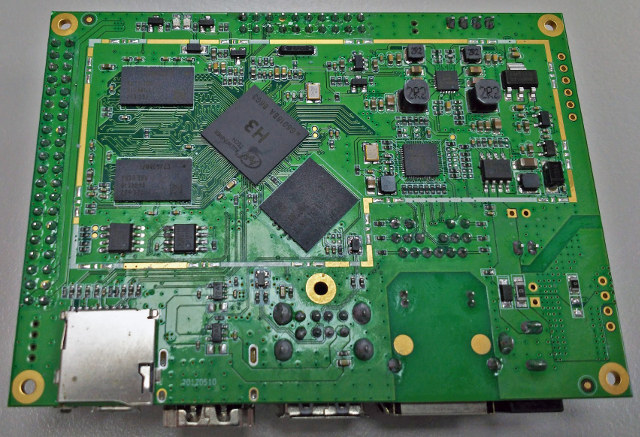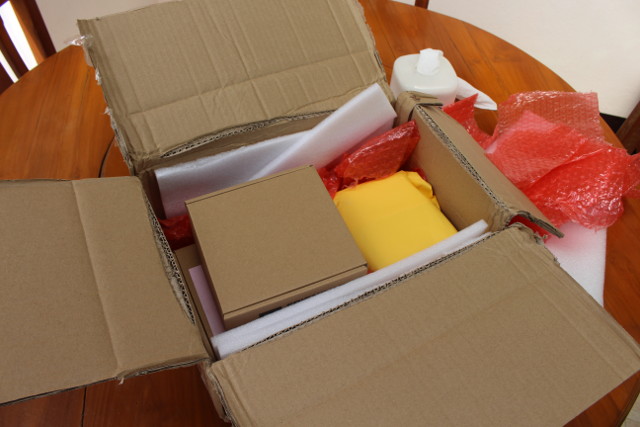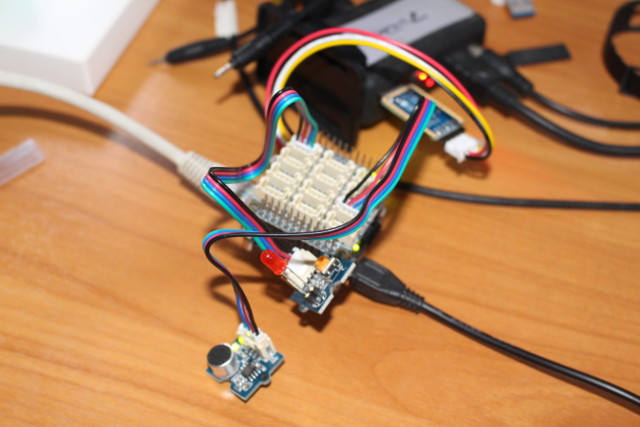Karl here. This was article originally going to be how to setup Octoprint 3D printer server on an Orange Pi Lite. But after looking and running through the instructions it seemed like it would be too much so I created an img to simplify things. I also explored running Octoprint on an Amlogic S905x or S912 device and it turned out to be an even better solution. You get a case, power supply, and eMMC flash storage. What is Octoprint? I use Octoprint mainly for its ability to start and stop prints without having to use an sd card. Time lapse is also a nice feature. And one last thing is that I setup a pushbullet notification when it is complete. For a full list of features check out http://octoprint.org/. What is needed? Orange Pi Lite board provided by GearBest for the article, or an Amlogic S905X or S912 Android […]
Linux 4.12 Release – Main Changes, ARM & MIPS Architectures
Linus Torvalds has just released Linux 4.12: Things were quite calm this week, so I really didn’t have any real reason to delay the 4.12 release. As mentioned over the various rc announcements, 4.12 is one of the bigger releases historically, and I think only 4.9 ends up having had more commits. And 4.9 was big at least partly because Greg announced it was an LTS kernel. But 4.12 is just plain big. There’s also nothing particularly odd going on in the tree – it’s all just normal development, just more of it that usual. The shortlog below is obviously just the minor changes since rc7 – the whole 4.12 shortlog is much too large to post. In the diff department, 4.12 is also very big, although the reason there isn’t just that there’s a lot of development, we have the added bulk of a lot of new header files […]
$25 NanoPi NEO Plus2 Board Adds 8GB Flash, WiFi & Bluetooth, More RAM, and an extra USB Port
NanoPi NEO 2 board has just got an update with NEO Plus2 board featuring the same Allwinner H5 processor and Gigabit Ethernet connectivity, but FriendlyELEC updated the RAM from 512MB to 1GB, added an 8GB eMMC flash, a WiFi & Bluetooth module, and an extra USB port. NanoPi NEO Plus2 specifications: SoC – Allwinner H5 quad core Cortex A53 processor with an ARM Mali-450MP GPU System Memory – 1 GB DDR3 Storage – 8GB eMMC flash (Samsung KLM8G1WEPD-B031) + micro SD card slot Connectivity – Gigabit Ethernet (via RTL8211E-VB-CG chip), 802.11 b/g/n WiFi and Bluetooth 4.0 (via Ampak AP6212A wireless module) USB – 2x USB 2.0 host ports, 1x micro USB port (for power only), 2x USB via headers Expansion headers 24-pin header with I2C, 2x UART, SPI, and GPIOs 12-pin header with 2x USB, IR pin, I2S, and GPIOs 5-pin audio 2.0mm pitch header with microphone and LINE out […]
H3Droid Android Firmware is Designed for Allwinner H3 Boards & Devices
Allwinner H3 boards such as Orange Pi PC and NanoPi NEO are mostly interesting due to their ability to run Linux and control I/Os, and while they also support Android, most people wanting to run Android are better served with TV boxes instead, as they come with enclosure, power supply, HDMI cable, and an IR remote control. That does not mean there’s no use case for Android on development boards, and that’s why probably KotCzarny, and other developers, have decided to work on H3Droid project to provide better Android images for Allwinner H3 boards and devices than the firmware released by manufacturers. Some of the improvements include “sane DRAM/CPU settings”, support for Custom recovery system, Google Play Store and more USB network adapters, as well as the removal of apps and feature unusable for people outside out China. You’ll also be able to access the board via SSH if you […]
NanoPi NEO NAS Kit Review – Assembly, OpenMediaVault Installation & Setup, and Benchmarks
NAS Dock v1.2 for Nano Pi NEO / NEO 2 is, as the name implies, a complete mini NAS kit for 2.5″ drive for NanoPi NEO or NEO 2 board. The NEO 2 board is strongly recommended, since it’s not much more expensive, but should deliver much better results due to its Gigabit Ethernet interface. I’ve received two of those kits together with several other boards & accessories from FriendlyELEC, and today I’ll show how to assemble the kit, configure OpenMediaVault, and run some benchmarks. NAS Kit V1.2 Assembly with NanoPi NEO 2 Board The only extra tool you’ll need is a screwdriver, and potentially a soldering iron as we’ll see further below. The metal box is stuff wih accessories so the first thing is to open one or two sides to take out the content. We have the mainboard, NanoPi NEO back plate, NanoPi NEO 2 back plater, a […]
ACT Power unveils its Project-X A1 production ready development board at Computex 2017
These days developer boards are a dime a dozen, but Taiwanese ACT Power has taken a different approach from most companies out there by making their addition production ready. The Project-X A1 is the first in what is expected to be a series of boards that will utilize the same mezzanine board connectors, to make it easy to change hardware platforms over time. The board on display at Computex is still an early prototype and some things will change before the final product launches. Specification wise we’re looking at: SoC – Allwinner H3 quad core Cortex A7 processor @ 1.2 GHz with Mali-400MP2 GPU @ 600 MHz System Memory – 1 GB DDR3 Storage 8GB eMMC flash, SD card slot Video Output – 1x HDMI 1.4a up to 4K @ 30 Hz Audio Output – HDMI, I2S via pin-header Connectivity – Gigabit Ethernet with optional PoE support USB – Two […]
FriendlyELEC Mailbag: NanoPi NEO OLED Starter Kit, NEO Station NS-120B, and NanoPi K2 Multimedia Kit
FriendlyELEC will send me some review samples from time to time, and normally I just ask for one item, but they aways send a bunch of their products instead. This time I asked for a NanoPi NEO NAS Kit v1.2 to play with, but I got clearly more than what I asked for… Let’s start with the box at the top. It contains “NanoPi NEO complete starter kit” selling for $29.99for $29.00 with the following items: NanoPi NEO board NanoHat OLED Heatsink and thermal pad kit Akuminum housing a Mico USB cable A micro SD card pre-loaded with NEO OLED Ubuntu firmware. Three buttons, and screws It’s actually not fully complete, as you’d need to provide and solder your own male headers to NanoPi NEO board. I did not have time for soldering that day, but the final results should be really neat based on pictures from their website. If […]
Using GPIOs on NanoPi NEO 2 Board with BakeBit Starter Kit
NanoPi NEO 2 is a tiny 64-bit ARM development board powered by Allwinner H5 processor. FriendlyELEC sent me a couple of NEO 2 samples together with their BakeBit Start Kit with a NanoHat and various modules via GPIOs, analog input or I2C. I’ve already tested both Armbian with Linux 4.11 and Ubuntu Core Qt with Linux 3.10, and ran a few benchmarks on NanoPi NEO 2. You would normally prefer to use the Armbian image with Linux mainline since it provided better performance, but at the time I was told GPIO support was not there. Configuring NanoPi NEO 2 board with BakeBit library So this week-end, when I decided to test GPIO support and BakeBit Starter Kit, I decided to follow this advice, especially nanopi-neo2-ubuntu-core-qte-sd4g-20170329.img.zip image is still the recommended one in the Wiki. So I went with that image. I’ll use Python examples from Bakebit library, but if you […]


